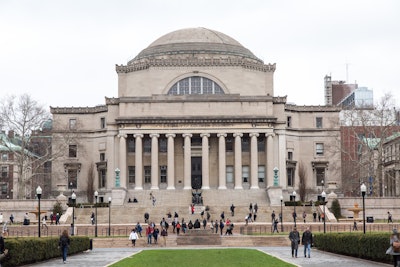
The preliminary settlement, filed last Monday in Manhattan federal court and pending judicial approval, resolves claims that Columbia misrepresented key data points to enhance its standing in the influential annual rankings. The university reached as high as No. 2 in the undergraduate rankings in 2022 before the alleged misconduct came to light.
Students alleged that Columbia consistently provided inaccurate data to U.S. News, including the false claim that 83% of its classes contained fewer than 20 students. The lawsuit argued these misrepresentations were designed to improve the university's ranking position and, consequently, attract more students willing to pay premium tuition rates.
The settlement covers approximately 22,000 undergraduate students who attended Columbia College, the Fu Foundation School of Engineering and Applied Science, and the School of General Studies between fall 2016 and spring 2022.
The controversy began in July 2022 when Columbia mathematics professor Dr. Michael Thaddeus published a detailed analysis questioning the accuracy of data underlying the university's No. 2 ranking. His report alleged that much of the information Columbia provided to U.S. News was either inaccurate or misleading.
Following the publication of Thaddeus's findings, Columbia's ranking plummeted to No. 18 in September 2022. The dramatic drop highlighted the significant impact that data accuracy has on institutional rankings and reputation.
In response to the allegations, Columbia announced in June 2023 that its undergraduate programs would withdraw from participating in U.S. News rankings altogether. The university cited concerns about the "outsized influence" these rankings have on prospective students' decision-making processes.
"Much is lost when we attempt to distill the quality and nuance of an education from a series of data points," Columbia stated in explaining its decision to withdraw from the rankings process.
While denying wrongdoing in the settlement agreement, Columbia acknowledged past deficiencies in its reporting practices. The university stated it "deeply regrets deficiencies in prior reporting" and has implemented new measures to ensure data accuracy.
Columbia now provides prospective students with information that has been reviewed by an independent advisory firm, demonstrating the institution's commitment to transparency and accurate representation of its educational offerings.
Columbia's decision to withdraw from U.S. News rankings reflects a growing skepticism among elite institutions about the value and impact of college ranking systems. Harvard and Yale have also stopped submitting data to U.S. News for various programs, signaling a potential shift in how prestigious universities approach rankings participation.
Under the terms of the agreement, student attorneys plan to seek up to one-third of the settlement amount for legal fees, which would leave approximately $6 million available for distribution among affected students. The settlement requires approval from a federal judge before taking effect.
Student lawyers characterized the accord as "fair, reasonable and adequate" given the circumstances of the case and the challenges inherent in proving damages from ranking manipulation.


















